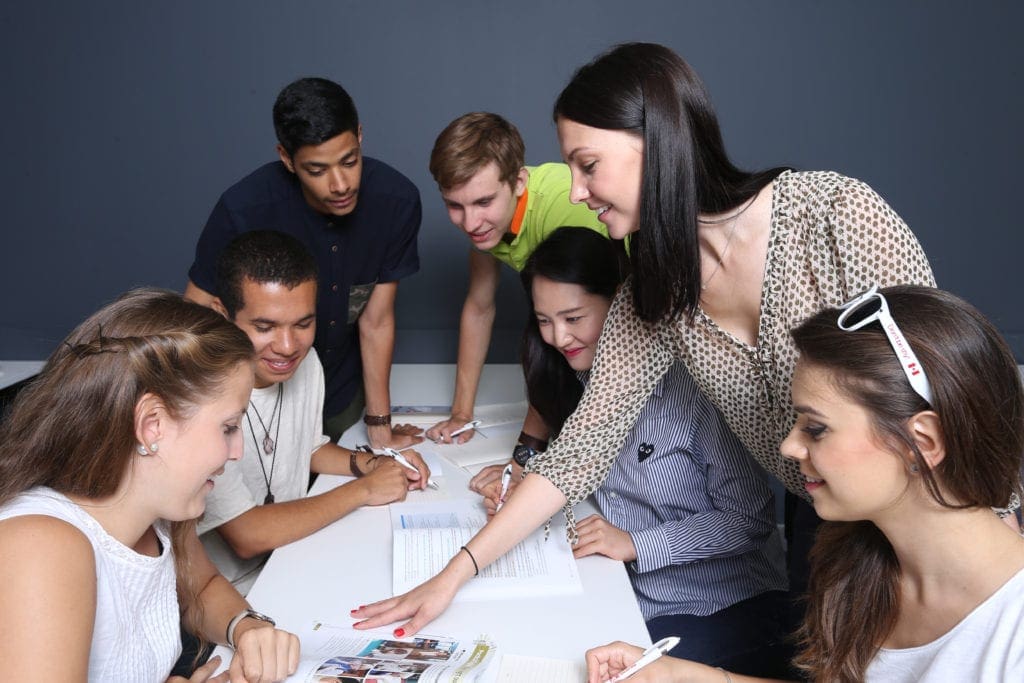From: The Times UK
The Waldorf School of the Peninsula is small, exclusive and packed with the children of Silicon Valley executives who love the role that technology plays in the pupils’ education there. That is, it plays no role whatsoever.
Instead, children at the $25,000-a-year elementary school in Los Altos, California, are learning to explore the world through physical experiences and tasks that are designed to nurture their imagination, problem-solving ability and collaborative skills.
Pencils, paper, blackboards and craft materials abound while tablets, smartphones and other personal electronic devices are banned from the classrooms until they are teenagers studying at the middle and high school campus nearby. Even then technology is only introduced slowly and used sparingly.
Alumni and present pupils include the children of Alan Eagle, a director of communications at Google, who helped to write the New York Times bestseller How Google Works, as well as those of a chief technology officer at eBay and senior executives at Apple and Yahoo. Their outlook is in line with some of the most powerful figures in the industry. Last month Tim Cook, the chief executive of Apple, said he did not want his nephew, who is about 12, to use social media. Last year Sean Parker, the billionaire and an early Facebook investor, admitted that he and the other creators of the publishing site had deliberately made it as addictive as possible. “God only knows what it’s doing to our children’s brains,” he said.

Beverly Amico, leader of outreach and development at the Association of Waldorf Schools of North America, said that the emphasis on “experiential” learning meant that 13-year-olds studying the Renaissance at a typical Waldorf school might, “in addition to learning stories about the history, reproduce a Renaissance masterpiece. Eighth-graders [14-year-olds] all do a Shakespeare play. Our high school science pupils do blacksmithing with a 1,500 degree forge to learn about chemistry and heat energy.”
There are 130 US schools in the association, which follows the century-old teachings of the philosopher Rudolf Steiner. Many of them are concentrated in the Bay Area technology hub around San Francisco and Silicon Valley.
Ms. Amico sees no contradiction. “It’s a very attractive option for people in the tech world for their children,” she said. “All employers, tech world or not, are looking for graduates these days that can think independently, take initiative, are capable of collaborating, have curiosity and creativity.”
The approach contrasts starkly with the new classroom orthodoxy in most American schools where children are spending more and more time staring at screens in lessons. There too, however, a grassroots movement is beginning to build against the relentless march of technology, supported by research illuminating the harmful effects of smartphone use on young brains and new shareholder pressure on the IT giants that make them.
“It seems like the US is the last place in the world to catch on that this is something that might be bad for kids,” said Joe Clement, a high school teacher in Virginia and co-author of the book Screen Schooled: Two Veteran Teachers Expose How Technology Overuse is Making Our Kids Dumber. “A lot of people are saying at the very least let’s pump the breaks before we turn our kids’ brains over to Apple, Microsoft, Google and HP.”
He said he had been appalled by the declining standards in his classroom in the past decade. He had observed “a significant difference in the ability of kids to focus, to interact socially, to think critically, to solve problems. They have all taken a noticeable dive over the past five to ten years.” After sharing his frustration with a colleague, Matt Miles, in the lunch canteen, the pair began to research the problem. They found an “overwhelming” consensus in the scientific community about the damage inflicted on children who overused screen time, but discovered that it had been largely ignored by most schools in their drive to invest heavily in tablets and other technology.
The book that emerged from their investigation, culled from their experiences over a combined 35 years in teaching, from interviews with teachers, parents and neuroscientists around the world and from published research, came out in the United States last year and in the UK this week.
Mr Clement said that he had been quietly encouraged by the number of desperate parents and determined groups that had contacted him and Mr Miles, concerned about the march of Ed-Tech, or educational technology. “They have said we need to link up and start to mobilise together,” he said. “That gives me a little bit of hope that maybe this thing has got legs.”
The ILAC Zero-Tech Pilot Project was launched last year in response to the growing number of young students addicted to their screens – who were missing out on direct communication and connection with their teachers and other students in the classroom. To learn more about the program, see https://www.ilac.com/ilac-zero-tech/
Read the article here: https://www.thetimes.co.uk/article/tech-free-schools-for-children-of-silicon-valley-jbh637vwp
The post The Times UK: Tech-free schools for children of Silicon Valley appeared first on ILAC.
from Blog – ILAC
https://www.ilac.com/tech-free-schools-for-children-of-silicon-valley/









